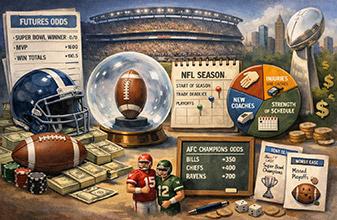Negativity
The percieved negativity is due to the fact that we keep addressing this for you, yet you choose to ask the same questions over and over. We're not the missionaries of AP, you know (although we do have a bishop). Rather, we are a group of APs who exchange information on this site. We do welcome people looking for help, but please don't assume we're out trying to turn everyone into APs. We're not. People who WANT to do this will find a home here, regardless of their skill level (i.e., a pure beginner with desire will find a lot of support here). However, we'll not try to change a "nonbeliever's" mind. We will refute the voodoo to keep the posts on our site mathematically correct.
As to your assertations, you cannot change the probability of winning and losing by simply reordering your bets. It's funny that you come here demanding an analysis of your progression without even asking nicely, as if we are the official progression debunkers. Again, I couldn't be happier that ploppies bet progressions. I like the pit to think I'm betting a progression, and I LOVE it when a progression bettor is sitting at my table.
Fortunately, your progression is easy to debunk. If one wins two hands then loses the next hand, the player wins only one unit rather than two (neglecting blackjacks, double-downs, etc -- let's just use the fair coin toss for this exercise; that's biased toward your argument, as there is no house advantage included). This will happen .5^3 times (1/8), so it's reasonably common. If one wins two hands then lose two hands, he'll lose one unit rather than break even -- this will happen .5^4 times (1/16). If you sum all the probabilies, you'll find that it works out EXACTLY the same as flat betting the same average bet. Basically, the scheme just redistributes wins and losses, but doesn't alter the sum.
Finally, blackjack isn't predictably "streaky", relative to any other random event. Plot out some random numbers on Excel -- your mind will see patterns that are merely a function of the normal distribution function. Keep in mind that random doesn't mean win-lose-win-lose, etc. Rather, it means you'll win two in a row 25% of the time (for the fair coin example), three in a row 12% of the time, four times in a row 6% of the time, etc. In short, one can expect several wins in a row, as well as several losses in a row. This is normal (no pun intended). Now, you don't think the previous coin toss had any effect on the next one, do you? Because, if you're chasing wins under the assumption that you have a greater probability because of the previous win, you are a playing on supersitiion and voodoo. Again, I wish you the best with it. Hopefully, you're just doing this to make the game more interesting. If you think you figured out the magic way to beat the casinos, you're about number 1,000,000,000 in that line. It's really not that easy, you know.
Finally, card counting isn't that hard. So many people assume it's hard without trying. Did you try and fail, or are you simply assuming that it's too hard?










